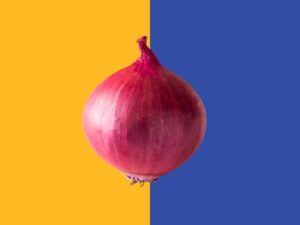Vinegar is a liquid consisting mainly of acetic acid and water, produced through a fermentation process that uses bacteria to break down sugars in grains, fruits, or other organic materials. It has been used for thousands of years as a condiment, preservative, and cleaning agent.
Vinegar is a versatile and multi-purpose liquid that can be used in many aspects of everyday life. It is commonly used in cooking, cleaning, and for health and beauty purposes.
What is White Vinegar?
White vinegar, also known as distilled white vinegar, is a clear liquid made from grain alcohol and diluted with water to achieve an acidity level of around 5%. It is used in a variety of ways, including cooking, cleaning, and as a natural remedy for various ailments.
Production Process
White vinegar is produced through a fermentation process in which grain alcohol is mixed with water and acetic acid bacteria, which convert the alcohol into acetic acid. The resulting liquid is then filtered and diluted to achieve the desired acidity level.
Uses of White Vinegar
White vinegar has many uses in cooking, including pickling, marinades, and salad dressings. It is also commonly used as a natural cleaning agent for surfaces such as countertops, floors, and windows. In addition, it has health benefits such as aiding in digestion and weight loss and can be used as a natural remedy for conditions such as hiccups and sore throat.
Benefits of White Vinegar
White vinegar has many benefits, including its ability to kill bacteria and viruses, aid in digestion, and promote weight loss. It is also an effective cleaning agent that can be used in place of chemical-based cleaners.
What is Distilled White Vinegar?
Distilled white vinegar is also a clear liquid made from grain alcohol and water, but it is distilled to achieve a higher level of acidity, typically around 10%. It is used for a variety of purposes, including cooking, cleaning, and as a natural remedy for various ailments.
Production Process
Distilled white vinegar is produced through a process in which the vinegar is distilled to remove impurities and increase its acidity level. The resulting liquid is then diluted to achieve the desired acidity level.
Uses of Distilled White Vinegar
Distilled white vinegar has many of the same uses as white vinegar, including cooking, cleaning, and health and beauty purposes. However, its higher acidity level makes it more effective in certain applications, such as pickling.
Benefits of Distilled White Vinegar
Distilled white vinegar has many of the same benefits as white vinegar, including its ability to kill bacteria and viruses, aid in digestion, and promote weight loss. Its higher acidity level also makes it a more effective cleaning agent for tough stains and grime.
Differences Between White Vinegar and Distilled White Vinegar
Acidity
The main difference between white vinegar and distilled white vinegar is their acidity level. White vinegar has an acidity level of around 5%, while distilled white vinegar has an acidity level of around 10%.
Flavor
White vinegar has a mild, slightly sweet flavor, while distilled white vinegar has a sharper, more sour taste.
Production Method
White vinegar is produced through a fermentation process, while distilled white vinegar is produced through a distillation process.
Uses
While white vinegar and distilled white vinegar have many of the same uses, their differing acidity levels make them more effective in certain applications. For example, distilled white vinegar is better for pickling.
Health Benefits of White Vinegar and Distilled White Vinegar
Antibacterial Properties
Both white vinegar and distilled white vinegar have antibacterial properties that make them effective in killing bacteria and viruses. This can help prevent the spread of infections and illnesses.
Digestive Health
Both types of vinegar can aid in digestion by helping to break down food in the stomach. They can also help regulate blood sugar levels and improve insulin sensitivity.
Weight Loss
Vinegar has been shown to aid in weight loss by suppressing appetite and reducing the storage of fat in the body.
Blood Sugar Control
Vinegar has also been shown to have a positive effect on blood sugar control, particularly in people with type 2 diabetes. It can help regulate blood sugar levels and improve insulin sensitivity.
Cleaning Uses of White Vinegar and Distilled White Vinegar
Stain Removal
Both white vinegar and distilled white vinegar can be effective in removing stains from clothing, carpets, and upholstery.
Odor Elimination
Vinegar is a natural deodorizer and can be used to eliminate unpleasant odors in the home, such as from pets, cooking, or smoking.
Surface Cleaning
Vinegar is an effective cleaning agent for surfaces such as countertops, floors, and windows. Its antibacterial properties make it particularly useful in the kitchen and bathroom.
Cooking with White Vinegar and Distilled White Vinegar
Flavor Enhancer
Both white vinegar and distilled white vinegar can be used to enhance the flavor of foods, particularly in pickling and marinades.
Pickling
Distilled white vinegar is the preferred type of vinegar for pickling due to its higher acidity level, which helps preserve pickled vegetables.
Salad Dressings
White vinegar is commonly used in salad dressings, as its mild flavor complements the other ingredients in the dressing.
Side Effects of White Vinegar and Distilled White Vinegar
Tooth Enamel Erosion
Regular consumption of vinegar, particularly in its undiluted form, can lead to erosion of tooth enamel and other dental problems.
Digestive Irritation
Some people may experience digestive irritation or discomfort when consuming vinegar, particularly in large quantities.
Allergic Reactions
Some people may be allergic to vinegar and may experience symptoms such as itching, hives, or difficulty breathing.
How to Choose Between White Vinegar and Distilled White Vinegar
Specific Use
Consider the intended use of the vinegar when choosing between white vinegar and distilled white vinegar. Distilled white vinegar is typically better for pickling and other applications that require a higher level of acidity.
Flavor Preference
Consider the flavor of the vinegar when choosing between white vinegar and distilled white vinegar. White vinegar has a milder, sweeter flavor, while distilled white vinegar has a sharper, more sour taste.
Availability
Consider the availability of the vinegar when choosing between white vinegar and distilled white vinegar. White vinegar is more widely available and can be found at most grocery stores, while distilled white vinegar may be more difficult to find.
Conclusion
White vinegar and distilled white vinegar are two similar but distinct types of vinegar, with differences in acidity, flavor, and production method.
Both types of vinegar have many uses and health benefits, but it is important to consider the specific use and intended application when choosing between them.
Experimenting with different types of vinegar can be a fun and rewarding way to discover new flavors and uses in cooking, cleaning, and health and beauty.





